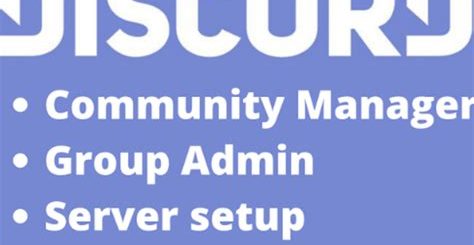The Dos and Don’ts of Discord Etiquette

In today’s fast-paced digital world, effective communication has become more important than ever. As bloggers, one of the crucial aspects of engaging with our audience lies in how we present ourselves online. In this blog post, we will explore dos and don’ts to enhance your online presence and create a meaningful impact. From introducing yourself appropriately to respecting others and avoiding the pitfalls of spamming and overusing emojis, we will delve into the art of thoughtful and respectful communication in the digital realm. Additionally, we will discuss the importance of steering clear from online arguments and maintaining a positive and productive virtual environment. So, let’s dive in and discover the key strategies to navigate the online space with grace and professionalism.
Dos: Introduce Yourself Appropriately
When it comes to online interactions, it is crucial to make a good first impression. This starts with introducing yourself appropriately. Whether you are joining a new online community, starting a new job, or simply engaging in a conversation, following a few dos can help you make a positive impact from the very beginning.
First and foremost, be clear and concise when introducing yourself. Provide relevant information about who you are and why you are engaging in the conversation. Keep in mind that others may not have a lot of time to read a lengthy introduction, so it is important to get your main points across efficiently.
Show enthusiasm in your introduction. One way to do this is by expressing your genuine interest in the topic or the community you are joining. Share your passion and let others know why you are excited to be a part of the conversation. This will help establish a positive and engaging tone right from the start.
Lastly, be mindful of the context. Different online communities may have different expectations when it comes to introductions. Take the time to observe how others are introducing themselves and follow suit. Adapt your introduction to fit the tone and style of the community, while still staying true to your own personality.
In summary, introducing yourself appropriately is a key aspect of online interactions. By being clear and concise, showing enthusiasm, and being mindful of the context, you can make a positive and memorable impression. Remember, the way you introduce yourself sets the tone for future interactions, so put your best foot forward!
- Be clear and concise
- Show enthusiasm and passion
- Be mindful of the context
| Dos: Introduce Yourself Appropriately |
|---|
| Be clear and concise |
| Show enthusiasm and passion |
| Be mindful of the context |
Don’ts: Spamming or Overusing Emojis
Emojis have become an integral part of our online communication. These little icons add a touch of fun and emotion to our messages, helping us express ourselves in a more visual way. However, just like anything else, there can be too much of a good thing. Overusing emojis or spamming them can have negative consequences and may not be received well by others. In this blog post, we will discuss the don’ts of spamming or overusing emojis and the importance of using them appropriately.
First and foremost, it’s crucial to remember that using excessive emojis can be distracting and may diminish the impact of your message. While emojis can enhance our communication, bombarding your text with numerous emojis can make it difficult for the recipient to focus on the actual content of your message. Instead of conveying your thoughts effectively, you might end up alienating or confusing the person you’re trying to communicate with.
Another important point to consider is that not everyone shares the same enthusiasm for emojis. While some individuals may enjoy using them sparingly, others may find them unprofessional or immature. It’s essential to be mindful of the context and the people you are communicating with. If you’re engaging in a professional setting or speaking with someone who prefers a more formal style of communication, it’s generally best to limit your emoji usage and maintain a more restrained tone.
Furthermore, spamming emojis can be interpreted as disruptive or attention-seeking behavior. Imagine receiving a message filled with the same emoji over and over again – it can quickly become annoying and can be perceived as an attempt to grab unnecessary attention. Just as with any form of communication, it’s important to use emojis sparingly and thoughtfully to ensure that your message is effectively conveyed and received.
Remember these don’ts when it comes to emojis:
- Don’t overuse emojis: Using excessive emojis can distract from the main message and may confuse the recipient.
- Consider the context: Be mindful of the setting and the individuals you are communicating with. In more formal or professional situations, limiting your emoji usage may be more appropriate.
- Avoid spamming emojis: Bombarding someone with the same emoji repeatedly can be seen as disruptive or attention-seeking.
In summary
Emojis are undoubtedly a fun and expressive way to communicate online. However, it’s important to use them in moderation and with consideration for the context and the recipient. By avoiding the don’ts of spamming or overusing emojis, you can ensure that your messages are well-received and that your intentions are properly conveyed. So, the next time you’re tempted to fill your text with emojis, take a moment to think about the impact it may have and use them wisely.
Dos: Be Respectful and Mindful of Others
The internet is a vast and diverse place, filled with people from all walks of life. When we navigate this virtual world, it is essential to remember that behind each screen is a real person with their own thoughts, feelings, and experiences. To create a harmonious and inclusive online environment, it is crucial to be respectful and mindful of others. This simple act of kindness can have a profound impact on how we interact and communicate with one another.
First and foremost, always treat others with respect. This means refraining from derogatory language, personal attacks, or any form of online bullying. Remember, just because someone has a different opinion or perspective does not mean they are wrong or deserving of disrespect. Instead, engage in thoughtful and constructive discussions that foster understanding and empathy.
Another important aspect of being respectful and mindful of others is to listen actively. How often do we scroll through social media posts or forum threads, waiting for our turn to speak, without truly hearing what others have to say? Take the time to read and absorb the thoughts and opinions shared by others. It is through active listening and open-mindedness that we can learn from one another and broaden our own perspectives.
In addition to being respectful and actively listening, it is crucial to be mindful of the impact our words and actions may have on others. Online interactions lack the non-verbal cues we rely on in face-to-face conversations, making it easy for misunderstandings to occur. Before hitting that send button, take a moment to pause and reflect on the tone and intention behind your message. Avoid making assumptions or jumping to conclusions, as this can lead to unnecessary conflicts and hurt feelings.
Ultimately, being respectful and mindful of others in the online world is about fostering connections, promoting inclusivity, and creating a safe space for everyone to express themselves. By embracing these dos, we can contribute to a positive online community that celebrates diversity and encourages meaningful interactions. Let us remember that behind each username is a person with feelings and emotions, and let’s treat them with the kindness and respect they deserve.
Don’ts: Engaging in Online Arguments
Engaging in online arguments can be tempting, especially when you come across someone with a different opinion or belief. However, it’s important to remember that arguing on the internet rarely leads to a productive outcome. Not only does it waste your precious time and energy, but it can also damage your online reputation and relationships. Here are a few don’ts to keep in mind when navigating online discussions:
1. Don’t Respond with Anger: When someone disagrees with you or expresses a different viewpoint, it’s natural to feel defensive. However, responding with anger or aggression will only escalate the situation. Take a deep breath, try to understand the other person’s perspective, and respond calmly and respectfully.
2. Don’t Make Personal Attacks: Engaging in personal attacks is one of the quickest ways to turn a civil conversation into a heated argument. Avoid attacking the other person’s character, appearance, or intelligence. Instead, focus on discussing the topic at hand and presenting your own arguments with supporting evidence.
3. Don’t Feed the Trolls: The internet is filled with trolls – individuals who thrive on provoking others and instigating arguments. It’s important to recognize when someone is simply looking for a reaction and not genuine discussion. Avoid engaging with these individuals as it will only encourage their behavior.
4. Don’t Dismiss Others’ Perspectives: It’s essential to maintain an open mind and respect the opinions of others, even if they differ from your own. Engaging in online arguments can often lead to a “my way or the highway” mentality, where you dismiss or invalidate other perspectives. Remember, healthy debates are built on understanding and considering various viewpoints.
In conclusion, while the internet can provide a platform for meaningful discussions, it’s crucial to exercise caution and avoid engaging in online arguments. By keeping these don’ts in mind and focusing on respectful and mindful interactions, you can contribute positively to online communities and cultivate constructive conversations.
Frequently Asked Questions
How should I introduce myself appropriately online?
Dos: When introducing yourself online, it’s important to use a professional tone and provide relevant information about yourself. Mention your name, profession, and any relevant background information. Avoid oversharing personal details.
What are the consequences of spamming or overusing emojis?
Don’ts: Spamming or overusing emojis can make your communication appear unprofessional and annoying. It may result in others ignoring your messages or even blocking you. Use emojis sparingly and appropriately.
How can I be respectful and mindful of others online?
Dos: Being respectful and mindful of others online involves treating people with kindness and empathy. Avoid offensive language or behaviors, and listen actively to others’ perspectives. Foster a positive and inclusive online environment.
Why should I avoid engaging in online arguments?
Don’ts: Engaging in online arguments often leads to unnecessary conflicts and negative interactions. It can damage your reputation and strain relationships. Instead, try to resolve conflicts through respectful dialogues or choose to disengage if necessary.
How can I practice active listening online?
Dos: Active listening involves paying full attention to the speaker’s message, seeking clarification when needed, and providing thoughtful responses. Show genuine interest and avoid interrupting. This helps foster meaningful conversations and positive relationships online.
What are the risks of sharing personal information online?
Don’ts: Sharing personal information online can make you vulnerable to identity theft, cyberstalking, or online harassment. It’s crucial to be cautious about the information you share and only disclose necessary details on trusted platforms.
Why is using proper grammar and spelling important?
Dos: Using proper grammar and spelling demonstrates professionalism, credibility, and respect for your audience. It enhances the readability and clarity of your content, making it easier for others to understand your message.


